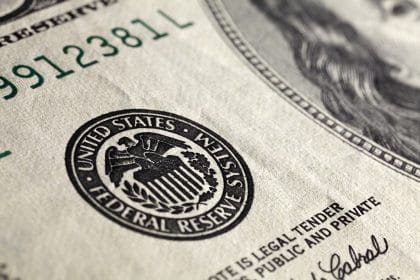As part of its measure to cushion the effects of the coronavirus economic saga, the Federal Reserve will be investing about $750 billion in Individual Corporate Bonds. It will help provide adequate liquidity for government expenditure while boosting the credit system.
Federal Reserve (Fed), the major institution tasked with the creation of monetary and economic policies that will heal the wailing economy, has announced it will begin to purchase Individual Corporate Bonds. This effort targeted at supporting the financial market is set to expand the Fed credit portfolio. Such financial responsibility and risk the Federal Reserve is assuming are in a bid to curtail the economic impacts of the coronavirus pandemic.
The United States economy enjoyed more than a decade-long expansion ending with a 4.8% shrink. As the world heals from the coronavirus, the United States economy is projected to dip further, inspiring drastic measures by the Fed to avoid.
Fed Individual Corporate Bond Program
The program is billed to add about $750 billion worth of corporate credit. Corporate bonds are issued by for-profit companies, while they are generally riskier than government bonds, they tend to compensate for that added risk by paying higher rates of interest. The government is adding Individual Corporate Bonds to its investments in Exchange Traded Funds (ETFs) which indicates the fight to recover from COVID-19 will be a more challenging venture.
According to the statement issued by Fed and as reported by CNBC, the Individual Corporate Bonds will help “to create a corporate bond portfolio that is based on a broad, diversified market index of U.S. corporate bonds”. The statement added:
“This index is made up of all the bonds in the secondary market that have been issued by U.S. companies that satisfy the facility’s minimum rating, maximum maturity, and other criteria. This indexing approach will complement the facility’s current purchases of exchange-traded funds”.
With the government’s purported interest in corporate bonds, there is the likelihood of a surge in the number of companies that will be issuing out bonds. To resolve this, the issuers, depending on the agency, must have attained either a BBB or a Baa3 rating as of the 22nd of March.
General Implication of the Heightened Credit Portfolio
Provided there is no resurgence in the coronavirus pandemic as would require another lockdown, the excessive government investment in bonds will provide adequate availability of funds that can be injected into the economy.
Conversely, a counterproductive implication may be recorded should the government buy bonds from a company whose revenues do not subsume its debt payments. Nonetheless, with the current government’s intervention, a slim probability exists that the initiative will yield positive dividends that will help the hailing economy.
next